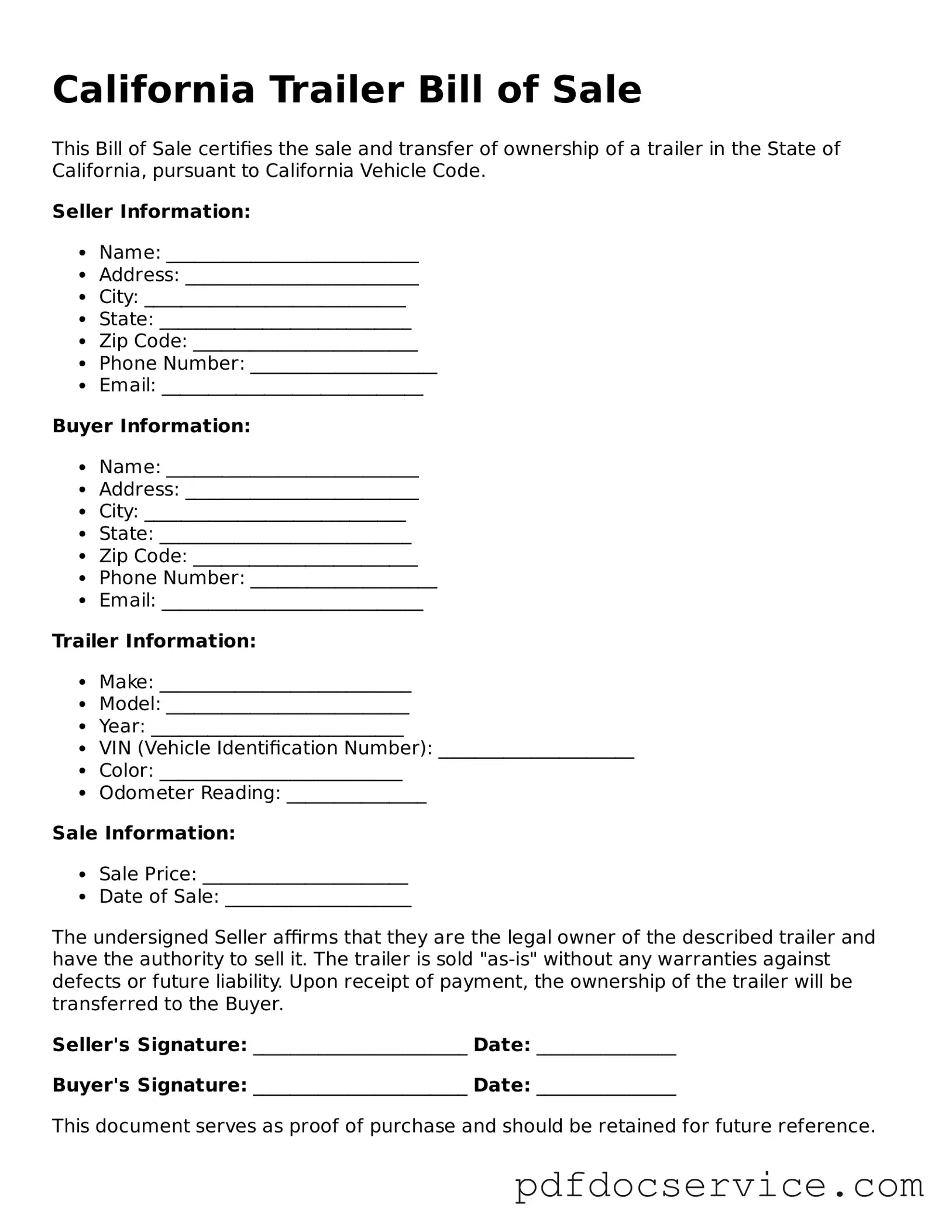Printable Trailer Bill of Sale Template for California
The California Trailer Bill of Sale is a legal document that records the transfer of ownership for a trailer in the state of California. This form serves as proof of the transaction between the seller and the buyer, ensuring that both parties have a clear understanding of the sale. Properly completing this form is essential for a smooth transfer and future registration of the trailer.
Open Trailer Bill of Sale Editor

Printable Trailer Bill of Sale Template for California
Open Trailer Bill of Sale Editor

Open Trailer Bill of Sale Editor
or
Get Trailer Bill of Sale PDF
Finish the form now and be done
Finish Trailer Bill of Sale online using simple edit, save, and download steps.